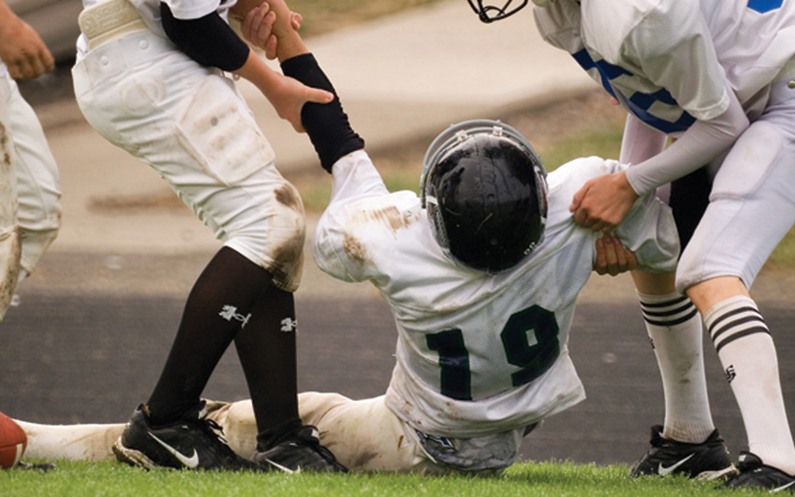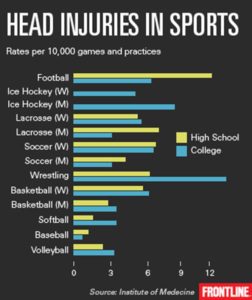As news and awareness of concussions spreads, it’s hard not to worry about the risks from sports activities. This is especially true with younger athletes.
The commonly accepted definition of concussion is a blow or jolt to the health that disrupts the function of the brain. It’s also called a minor traumatic brain injury and often results from a car crash, fall, or sports injury. An estimated one in five high school athletes will sustain a sports concussion during the season. Football is the highest concussion risk sport for males, with 11.2 reported among 10,000 “athletic exposures” at practices and games, according to a report in The New York Times. Soccer is the highest risk concussion sport for females, with 6.7 per 10,000 athletic exposures.
As the new school year approaches and pre-season practices launch, it’s important to educate parents and players about concussions.
Tips for preventing concussions include:
- Demonstrate safe techniques and rules of the game for any sport your child is participating in.
- When appropriate for the sport, make sure he or she wears a helmet and keeps it on whenever on the field.
- Talk to your child about the risks of concussion and the importance of safe play. Make sure they understand not to strike another athlete on the head, use their head or helmet to contact another player, or make illegal contact.
Even after preventative actions are taken, the risk for concussions remains. So it’s important your child understand the importance of reporting symptoms to an adult. The most commonly reported concussion symptoms are:
- Headache
- Dizziness
- Trouble concentrating
- Confusion
- Sensitivity to light
- Nausea
Studies show as many as 7 in 10 young athletes with a possible concussion continue playing with those symptoms. In almost all sports, young athletes are more likely to continue playing during competition than they do during practice, according to statistics at the Centers for Disease Control and Prevention website.
In many cases athletes are concerned about losing a spot on the team, jeopardizing a future sports career, looking week, or letting teammates down. Talking with your child about the severity of concussions can help them understand when to report symptoms.
As long as your child didn’t lose consciousness and isn’t vomiting, it’s OK to proceed to urgent care (instead of an emergency room) for a suspected concussion. And it’s important to get treatment because otherwise the injury could result in long-term brain damage and increase the risk for dementia.
Read more here about sports concussion testing at ZipClinic Urgent Care Centers.



Recent Comments